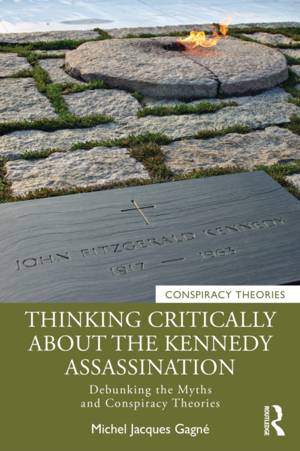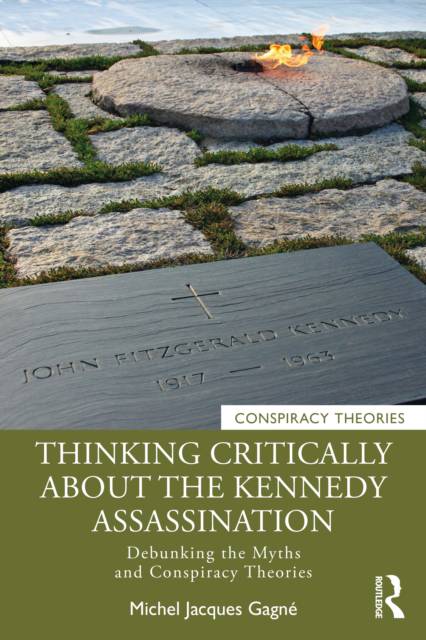
- Afhalen na 1 uur in een winkel met voorraad
- Gratis thuislevering in België vanaf € 30
- Ruim aanbod met 7 miljoen producten
- Afhalen na 1 uur in een winkel met voorraad
- Gratis thuislevering in België vanaf € 30
- Ruim aanbod met 7 miljoen producten
Zoeken
Thinking Critically about the Kennedy Assassination
Debunking the Myths and Conspiracy Theories
Michel Jacques Gagné
€ 53,45
+ 106 punten
Uitvoering
Omschrijving
Thinking Critically About the Kennedy Assassination uses the tools of critical thinking, historical research, and philosophical inquiry to debunk the many myths and conspiracy theories surrounding JFK's shocking and untimely death.
As we approach the 60th anniversary of the violent public assassination of President John F. Kennedy, over half of all Americans surveyed continue to believe that he was killed by a conspiracy involving multiple assassins. Through its reasoned and detailed analysis of the content and evolution of JFK conspiracy narratives, this book also serves as a comprehensive case study of paranoid reasoning and modern mythmaking. The book's opening chapters lay out the "official" academic consensus concerning the Kennedy assassination (better known as the "Lone Gunman Theory") and discuss the origins of popular interpretations of Kennedy's life and death, such as the nostalgic myth of "Camelot," the unsympathetic "Irish Mafia" narrative, and the many conspiracy theories critical of both. Subsequent sections scrutinize the alleged motives of leading conspiracy suspects, the ballistic, forensic, and medical evidence related to JFK's murder, and the most popular "proofs" of an enduring government cover- up. The book concludes that no clear evidence exists to suggest that JFK was the victim of a conspiracy and ends with a discussion of the causes and consequences of paranoid thinking in contemporary public discourse. This volume will appeal to students of history, politics, psychology, and cultural and media studies, and to a broader audience interested in American history, critical thinking, and conspiracy thinking.Specificaties
Betrokkenen
- Auteur(s):
- Uitgeverij:
Inhoud
- Aantal bladzijden:
- 482
- Taal:
- Engels
- Reeks:
Eigenschappen
- Productcode (EAN):
- 9781032114477
- Verschijningsdatum:
- 28/03/2022
- Uitvoering:
- Paperback
- Formaat:
- Trade paperback (VS)
- Afmetingen:
- 156 mm x 234 mm
- Gewicht:
- 707 g

Alleen bij Standaard Boekhandel
+ 106 punten op je klantenkaart van Standaard Boekhandel
Beoordelingen
We publiceren alleen reviews die voldoen aan de voorwaarden voor reviews. Bekijk onze voorwaarden voor reviews.











